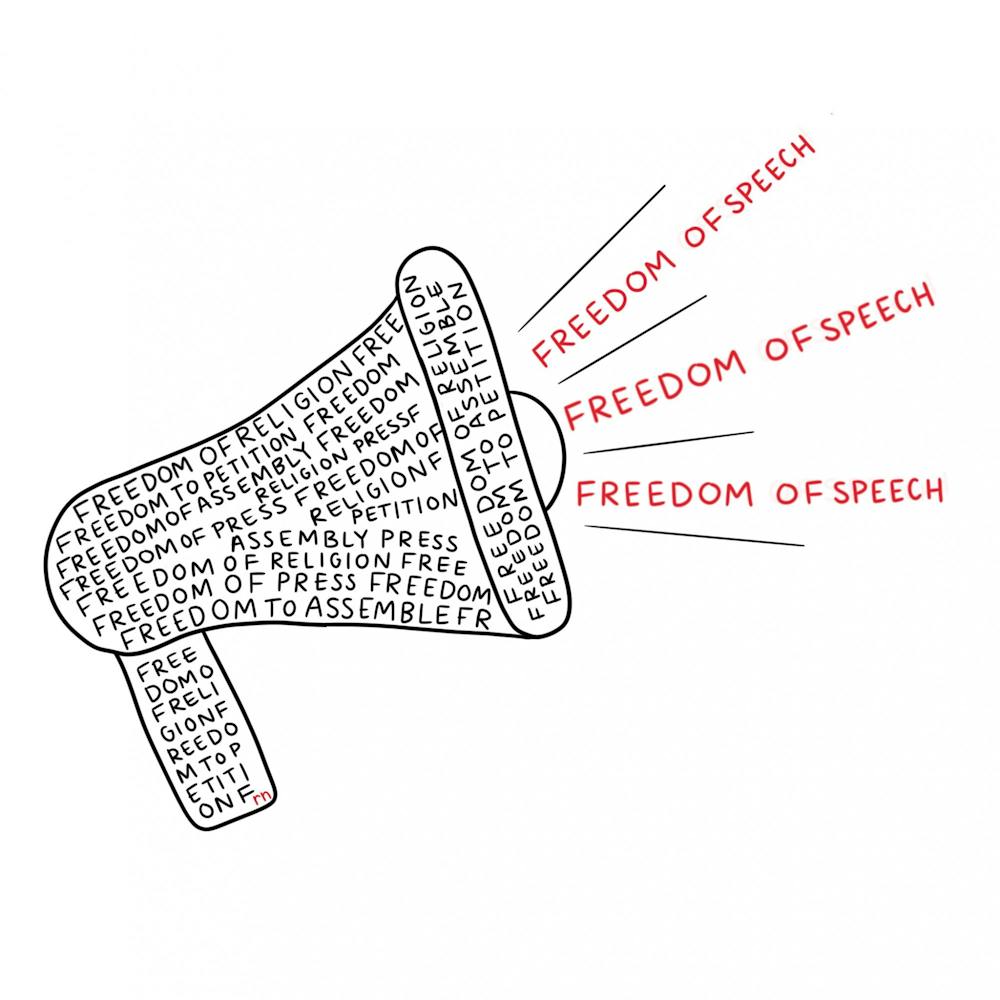On Oct. 31, a trial between Auburn University economics professor Michael Stern and five former University officials began—putting the First Amendment and all it entails under a microscope.
Stern, former chair of the economics department at Auburn University, is suing former President Jay Gogue and Steven Leath, former Provost William Hardgrave and Timothy Boosinger and former Dean of the College of Liberal Arts Joseph Aistrup.
His claim is that he faced many forms of retribution—including receiving smaller raises than other chairs and eventually being relieved of his position in 2018—because he spoke publicly about his concern for the deliberate “clustering” of student-athletes in the public administration major in the political science department.
The defense claims that Stern's removal from his position as chair of the department was unrelated to the events highlighted by the prosecution.
The trial, regardless of which side prevails, has called the First Amendment into the limelight and urged both those individuals involved in it and keeping up with it to take a deeper look at the freedom of speech and what it means.
In 1937, U.S. Supreme Court Justice Benjamin N. Cardozo answered this question when he described the freedom of expression and speech as “the matrix, the indispensable condition, of nearly every other form of freedom” in Palko v. Connecticut—the Supreme Court case that introduced the idea that some freedoms in the Bill of Rights, including the right of freedom of speech in the First Amendment, are more important than others.
Cardozo implied that freedom of speech lays the groundwork for an array of other freedoms, and he was right.
Even most hate speech, aside from that speech that violates the legal rights of others or presents harm to our government or country, is technically protected by the First Amendment.
For Auburn, this speech—protected though unsettling to many—has taken many forms.
In spring 2017, it was a white nationalist and neo-Nazi Richard Spencer’s speech on Auburn’s campus that was unable to be stopped.
However loud his horrific words were, the Auburn family’s were louder. Auburn’s response showed that people can be counted on to use their words for good, and the hate speech of one person will never prevail over the life-giving speech of thousands of others.
In spring 2022, it was a graphic anti-abortion display set up on the University’s most crowded concourse that sent the student body into a rage.
Students also responded to this incident by speaking up for what was right. As soon as the news spread that the display was set up on Haley Concourse, students took it upon themselves to set up new displays and spread messages such as “you are loved.”
It might seem unfathomable that the kind of hate that Richard Spencer’s speech spread and the kind of speech that displayed photos of the bloody body parts of babies is protected.
However, for the most part, it is. And if it wasn’t protected, there is no way to know what other forms of speech you hold so dear wouldn’t be either.
The instances of Richard Spencer’s hate speech and the graphic abortion display on Auburn’s campus display the profound power of free speech and the people that possess the right to it.
They also show that words can always, even if in response to hate, bring about positive change, and people do, and always will, have the power to band together and stand up against speech that spreads hatred.
Free speech is often a hard pill to swallow, but it is a pill that history has shown has the power to cure a multitude of evils—even if those evils stem from speech as well.
Banning speech of any kind is a slippery slope. The United States has never taken it lightly, and it never should. It may have the power to inflict pain and hurt, but it also has the power to change the world for the better.
The next time you witness something you believe should be spoken out against, remember that you have the right to do so, but also remember the heavy responsibility that comes with that.
Speech is quick, permanent and powerful, and it is up to you to decide which side of it you want to be on.
Editorials represent the majority view of The Plainsman's editorial board and do not necessarily represent that of the entire newsroom.
Do you like this story? The Plainsman doesn't accept money from tuition or student fees, and we don't charge a subscription fee. But you can donate to support The Plainsman.
Editorials represent the majority view of The Plainsman's editorial board and do not necessarily represent that of the entire newsroom.





